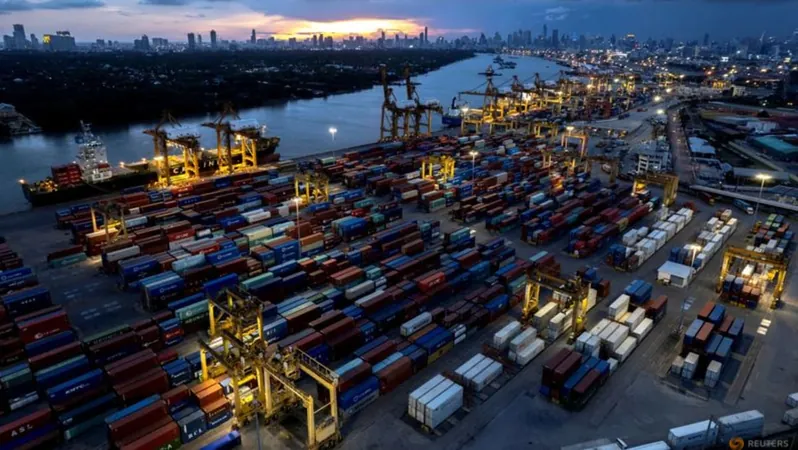
Thailand's Bold Plan to Slash Trade Surplus with the U.S. to $20 Billion!
2025-03-28
Author: Li
Thailand's Ambitious Trade Goal
In a strategic move to balance its trade relationship with the United States, Thailand has set an ambitious goal to reduce its trade surplus with the U.S. to $20 billion. Officials announced that this effort will involve ramping up imports of various U.S. goods, including crucial agricultural staples.
Current Trade Dynamics
Last year, the United States stood as Thailand's largest export market, with exports totaling an impressive $54.96 billion, making up 18.3% of Thailand's total shipments. With such dependence on the U.S. market, it is clear why Thailand seeks to address the existing trade surplus, which was reported to be $35.4 billion. The U.S. Commerce Department has indicated an even higher figure for its deficit with Thailand, pegging it at $45.6 billion, underscoring the complex dynamics of international trade.
Strategic Import Plans
Passakorn Chairat, the head of the Industrial Economics Office within Thailand's Ministry of Industry, revealed that although there is no specified timeline for achieving this surplus reduction, the Thai government is actively preparing strategies to bolster imports—especially targeting agricultural products like corn and soybeans. This decision may have significant implications for domestic producers as Thailand seeks to create a more balanced trading scenario.
U.S. Scrutiny and Trade Tensions
The urgency of this initiative comes amid heightened scrutiny from U.S. officials regarding foreign trade deficits. In fact, President Donald Trump has recently set a deadline for federal agencies to conduct comprehensive reviews of recent trade policies, which could include crucial analyses of trade imbalances.
Concerns for Thai Exports
In a related development, Finance Minister Pichai Chunhavajira expressed concerns that Thai exports of auto parts, a vital sector within the economy, could be adversely affected due to newly imposed tariffs by the U.S. As trade tensions continue to evolve, both countries will undoubtedly be watching these developments closely.
Conclusion
Thailand's proactive stance in fostering stronger trade ties serves as a signal of its commitment to equitable trade practices and collaboration, but only time will tell how successful these efforts will be in fostering lasting economic partnerships. Stay tuned as we continue to follow this pivotal story!



 Brasil (PT)
Brasil (PT)
 Canada (EN)
Canada (EN)
 Chile (ES)
Chile (ES)
 Česko (CS)
Česko (CS)
 대한민국 (KO)
대한민국 (KO)
 España (ES)
España (ES)
 France (FR)
France (FR)
 Hong Kong (EN)
Hong Kong (EN)
 Italia (IT)
Italia (IT)
 日本 (JA)
日本 (JA)
 Magyarország (HU)
Magyarország (HU)
 Norge (NO)
Norge (NO)
 Polska (PL)
Polska (PL)
 Schweiz (DE)
Schweiz (DE)
 Singapore (EN)
Singapore (EN)
 Sverige (SV)
Sverige (SV)
 Suomi (FI)
Suomi (FI)
 Türkiye (TR)
Türkiye (TR)
 الإمارات العربية المتحدة (AR)
الإمارات العربية المتحدة (AR)